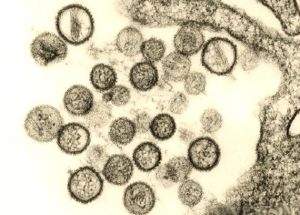
Smallpox, the ancient plague that claimed hundreds of millions of lives, dates back at least as far as the Ming dynasty in China. Professor Fu Chuanxi and his Zhejiang Chinese Medical University team published a study in the Chinese Journal of preventive medicine, revealing that the “Inoculation”, born in the ancient Chinese traditional medical system and preventive practice, was a pioneer in immunisation worldwide, its scientific principle and practical value far exceed the previous cognition, and directly inspired the Western invention of vaccinia vaccination method.
It is pointed out that the innovative methods adopted in ancient China, such as vaccinia scab inoculation and nasal administration, have obvious advantages. In the selection of vaccinia, the ancient doctors chose the mild patients or convalescent acne scabs as a natural source of vaccine, which is essentially through phenotypic screening to obtain low virulence live strain. While reducing the risk of vaccination, the live virus can induce an immune response similar to that of natural infection, forming a long-term immune memory and providing lifelong protection to those who successfully vaccinate. In addition, in some areas, the method of“Cooked vaccine”-taking the vaccinia scab as the vaccinia vaccine for more than 7 consecutive passages, its mechanism is highly consistent with the theory of modern live attenuated vaccine.
In terms of inoculation technology, according to the transmission characteristics of smallpox virus which can invade through the nasal mucosa, the method of nasal vaccination was adopted in ancient smallpox operation in our country to improve the protection effect. At the same time, nasal vaccination reduces the risk of cross-infection with smallpox and other diseases, such as leprosy and syphilis, compared with the use of pyodermy in other countries.
Based on the detailed historical data and modern knowledge of vaccinology, it is pointed out that smallpox vaccination in China is the source of smallpox vaccine in the world. The research highlights the pioneering position of ancient Chinese immunology in the history of world vaccinology, and puts forward some suggestions for the development and vaccination of contemporary vaccines.
The study noted that traditional Chinese medicine (tcm) theories such as “Healthy Qi should be retained, evil should not be allowed to interfere”, which emphasise the Hapten power of the human body, are associated with vaccine hesitancy among TCM practitioners. It is pointed out that the successful practice of human pox therapy under the guidance of the theory of“Fetal toxin-time-qi” can provide a new perspective and thinking for coping with the hesitancy of vaccines with Chinese characteristics.
Secondly, the ancient Chinese people pox vaccination in the source of selection, vaccination time, methods and vaccination taboos, etc. have a clear provision, forming a more systematic knowledge system. The review of the system will provide reference for the study of integrated traditional Chinese and Western medicine in vaccinology. Further research into human pox may lead to innovations in vaccine development. For example, the acne scab inoculation method used in human pox surgery is often combined with traditional Chinese medicine powders such as Tongguan san, which are used to enhance the permeability of the mucosa (Xuan Tongqiao) to promote nasal absorption. Further exploration of these components may provide clues for the development of safer and more effective nasal spray vaccine adjuvants.
In addition, the technical route of live attenuated vaccine, nasal vaccination in today’s still has high application value, it is worth further exploration and development.
The research was supported by the annual general project of the National Social Science Foundation of China and the project of Philosophy and social science planning of Zhejiang province.